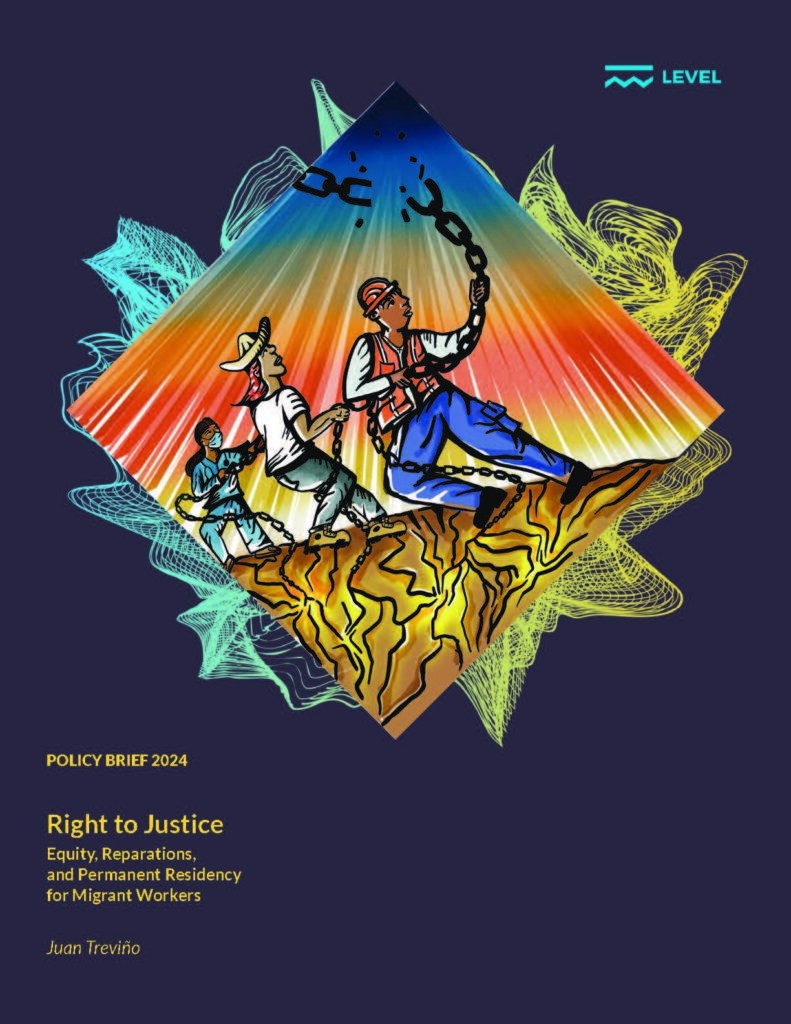This policy proposal attempts to provide a more critical and in-depth exploration of the relationship between the policies that make possible the Temporary Foreign Workers Program (TFWP) in Canada and the exploitative and inhumane labour practices that foreign workers are forced to endure when hired under employer-specific work permits, also known colloquially as closed work permits. More precisely, it aims to identify the link between the policies implemented by Immigration, Refugees, and Citizenship Canada (IRCC) through the Immigration and Refugess Protection Regulations ( IRPR) and the effects they have in the lives of migrant workers, particularly for vulnerable workers who have faced financial abuse, psychological abuse, or sexual abuse at the hands of their employers.
While this proposal focuses on the TFWP, as this is the program that attracts most low-wage and so called “low-skilled” workers to Canada (some of the most-vulnerable newcomer groups), there are other immigration programs such as the International Mobility Program (IMP), through which foreign labour is hired under conditions that also restrict their freedom of movement and their liberty to find other employment opportunities when facing abuse. In addition to people hired under these programs, there are thousands of undocumented workers whose mere existence has been deemed illegal, and who have to endure precarious working conditions, unstable and unsafe jobs, and violations to their dignity in the workplace and in their day-to-day lives. For these people, there are few and fairly inaccessible options to regularize their status, or to become Permanent Residents, regardless of the length of time they’ve spent in the country.
Thousands of people become undocumented precisely because of these policy choices. Exploitation and vulnerability pushes workers into precarious status as they can’t find any help. At the same time, many of those who are undocumented due to other systemic barriers are often left with no option but to accept unlawful and fraudulent job offers where they have to pay thousands of dollars in recruitment and hiring fees to regularize their status through the TFWP, only to then experience even more abuse and exploitation as they become tied to their employer. In this sense, these restrictive conditions imposed on Temporary Foreign Workers (TFW) create a power imbalance that favours the employer ,and opens up opportunities to profit off the necessity of low-income, racialized, and vulnerable individuals in Canada and around the world. This cycle of exploitation disproportionately affects racialized workers from the global south who are the target demographic of the program.
The Government of Canada’s rhetoric around foreign labour has been clear and invariable: This program represents an economic benefit for Canada and for participants of the program. However, the restrictive conditions in TFW’s work permits, the multiple barriers they face to exercise their rights, the shocking stories of abuse, and undignified living conditions have led to loud and persistent criticism by labour groups, human rights activists, and even the United Nations (UN), who rightfully describe the program as a tool for exploitation and a form of modern slavery. It is evident that employers are the main beneficiaries of this program, while workers have to settle for unequal rights and hostile working conditions.
At the international level, Canada tries to portray itself as a country that fosters diversity, inclusion, and respect for human rights. And, while these may be values and ideas shared by some of its inhabitants, Canada as a colonial entity and economic force has failed to uphold these values. Instead, it continues to perpetuate unfair and inhumane labour practices wherein Canada’s economic growth and the prosperity of its Permanent Residents and citizens are obtained at the expense of the suffering of racialized and vulnerable people from the global south, whose existence in this country is strategically deemed “temporary” and whose labour has been proved disposable.
Efforts to mitigate the abuse of migrant workers by the Government of Canada have been perceived by workers, advocates, and allies as performative actions intended to clean Canada’s reputation, but with little impact to the working conditions and wellbeing of those affected. These ”Band-Aid” solutions show that the public concern and discontent does impact the Government’s decisions and policy implementation. Sadly, the solutions and special programs that have been created to help workers escape situations of abuse are ineffective, inaccessible, and do not prevent situations of violence and exploitation from taking place. As described by the UN Special Rapporteur on contemporary forms of slavery “employer-specific regimes, including certain Temporary Foreign Worker Programmes, make migrant workers vulnerable to contemporary forms of slavery, as they cannot report abuses without fear of deportation.”
Watch Juan’s policy presentation:


